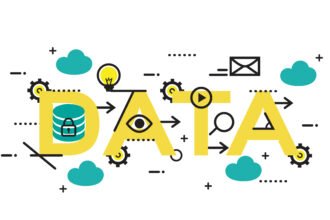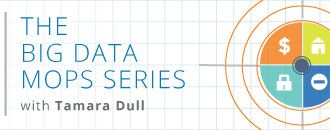What is big data? Do you really understand what it is? Try to recall the perfect definition of big data. Umm…not getting, right? In simple terms, big data is large volume of data which may be unstructured or structured generated by businesses. No, don’t connect this data with volume. Actually, it’s about the management of data by the organizations.
Audience is still confused with big data. Here are five signs that you don’t understand big data –
Big Data! Ignore it…
What is big data? Do you really understand what it is? Try to recall the perfect definition of big data. Umm…not getting, right? In simple terms, big data is large volume of data which may be unstructured or structured generated by businesses. No, don’t connect this data with volume. Actually, it’s about the management of data by the organizations.
Audience is still confused with big data. Here are five signs that you don’t understand big data –
Big Data! Ignore it…
That isn’t good. It’s a fact that within a few short years, the data and ability to convert it into business value will become significant. Information is power in any business and big data is all about information which can’t be thought of collecting or analyzing prior to some years. No matter what’s the field, you need to expect that every job within the field, right from untrained hourly worker to professionals, the business landscape will be changed by data in the near future. So, now you get it that if you ignore big data, it would be like sticking your head in the sand.
Do you think Big Data is about data?
Clear the fog in your mind as big data isn’t about data. It’s about how do you manage it? People have always misunderstood that simply collecting data in large volumes or analyzing it is the end of big data. The actual logic behind big data is the use of information that’s gleaned from the data in a valuable way. Simple speaking it’s about the improvement in processes, the decision you make and the business value you add. When the data is interpreted valuable and implemented smartly then only the big data projects would prove to be cost efficient and time saving.
Big data means “BIG”
The enhancing technology that seemed to quickly permit you to collect as well as analyze high quantities of data than prior gave birth to the word “big data.” Humans gained the ability of analyzing new types of data – especially unstructured data which played a big role in naming the data as big data. Initially, the only useful data was the perfect fit into rows and columns of a database. Today, the situation is completely different as the analysis of large text blocks including the books and journals, photos, videos audio, health records and much more is possible. This proves that big data isn’t just about the data volume but it balances the variety of data which is accessible now.
The more data, you get hands on the better
Some businesses are changing their service as the data hoarders as they have started collecting and storing great volumes of data as they might require this data in the future. But this raises the cost of the enterprise. This is because data storage isn’t free and the data collection grows every year and so does the cost. Additionally, it’s a big challenge to search and analyze vast quantity of data and also, requires resources in large numbers. This concludes that instead of hoarding data only collect what is actually required and makes sense in terms of business.
Collecting and storing large volumes of your own data is big data
Truly speaking, it’s a big no. When the organizations and companies start to view their data as the business commodity it is, a market where companies can buy, sell and trade data will emerge. In addition, significant amount of data is collected and shared by scientific research organizations, open government data initiatives and other non-profit agencies. Data which the organizations require is already available which reduces the need of collecting and storing data greatly.
In summary, it is expected that these pointers will clear some of the confusions for big data and its misleading name. This will help you to understand the basic concept of big data and navigate the inevitable changes to come.







